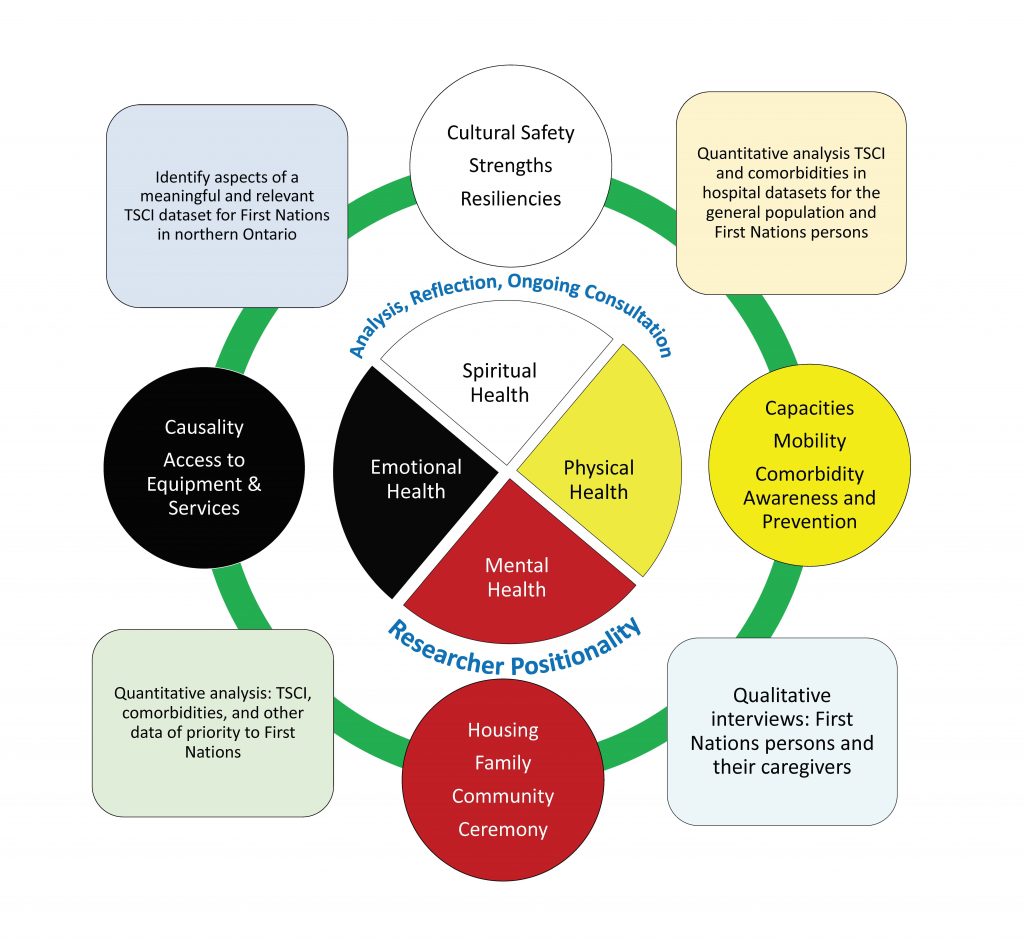Publications
Praxis is strongly committed to sharing details of the great work that is taking place throughout the SCI field. Explore SCI-related scientific papers, reports and more.

This is the breadcrumbs block. Breadcrumb will populate on actual page.
Sandra A. Juutilainen, Melanie Jeffrey, Suzanne Stewart
Human Biology, Volume 91, Number 3, Summer 2019, pp. 141-151. doi: 10.13110/humanbiology.91.3.0
Summary
Using Indigenous ways of knowing as a framework for research relationships can be an ethical guide and a bridge between researchers and Indigenous communities. This article shares models developed to bridge Indigenous epistemologies with Western qualitative and quantitative research methods and demonstrates how these epistemologies can be used to guide the authors’ development of a pilot study on traumatic spinal cord injury. This meant reframing the research question from “How do we build an Indigenous TSCI registry in underserved northern regions of Ontario?” to “What are characteristics of a spinal registry in northern Ontario that are meaningful and relevant to the needs identified by Indigenous communities in Northern Ontario?”
Key Findings
While Canada generally has excellent health care data, too often data depicting Indigenous health is deficit based. Disparities exist between Indigenous and non-Indigenous health, but without addressing cultural, social, and broad environmental contexts of these differences, underlying causes of these health disparities and policy initiatives affecting them cannot be understood.
No studies to date have reported the strengths, resiliencies, and experiences of Indigenous persons, for example, those with traumatic spinal cord injury (TSCI), the focus of this pilot study. This methodology de-centers the prototypical “five Ds” of Indigenous data: disparity, depravation, disadvantage, dysfunction, and difference. Instead, it emphasizes positive aspects of individuals and communities to build a strengths-based, comprehensive, and culturally appropriate data set (Walter and Suina 2019).

Support for this research is part of Praxis’ commitment to responding to the Truth and Reconciliation Commission’s Calls to Action by partnering with Aboriginal populations to answer important questions from the community.
Drs Sandra Juutilainen and Melanie Jeffrey were supported through funding from the Ontario Neurotrauma Foundation and Praxis.
Learn more about this project.
Praxis is strongly committed to sharing details of the great work that is taking place throughout the SCI field. Explore SCI-related scientific papers, reports and more.